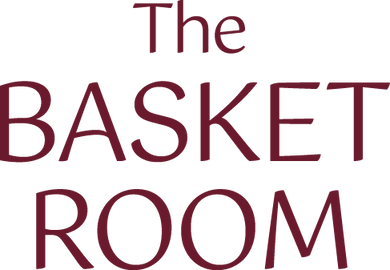Sustainability & Ethics
Our Sustainability Impact Report
Learn more about our Supply Chain and Social Impact here.
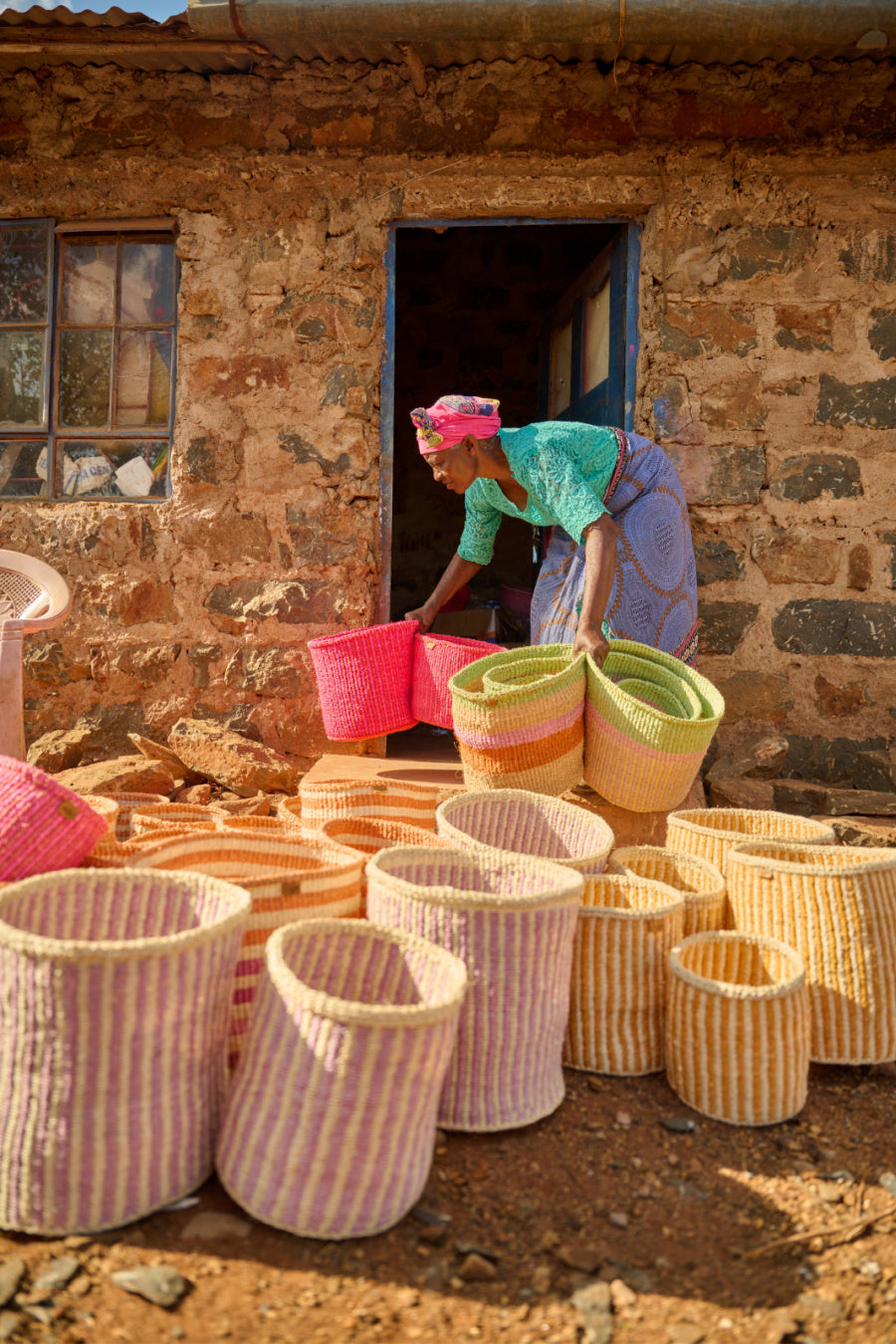
Slow Production
It is estimated that the fashion industry overproduces by between 30% and 40% each season and that over 22 million pieces of homeware are sent to landfill each year in the UK alone; we do not want to be part of these statistics.
We want to be an example that "fast" fashion and “fast” homeware do not have to be the status quo. Whilst most brands have multiple production cycles per year to ensure they always keep up with the latest trend, we differ. We only have two order windows per year. Yes, this approach might mean that when your furry friend chews your favourite dog basket, you have to purchase a replacement in a slightly different colour or wait six months for your current favourite to be back in stock. But we think this is a price worth paying to ensure that we are not overproducing to meet anticipated
demand and that the artisans we engage with have consistent orders throughout the year.
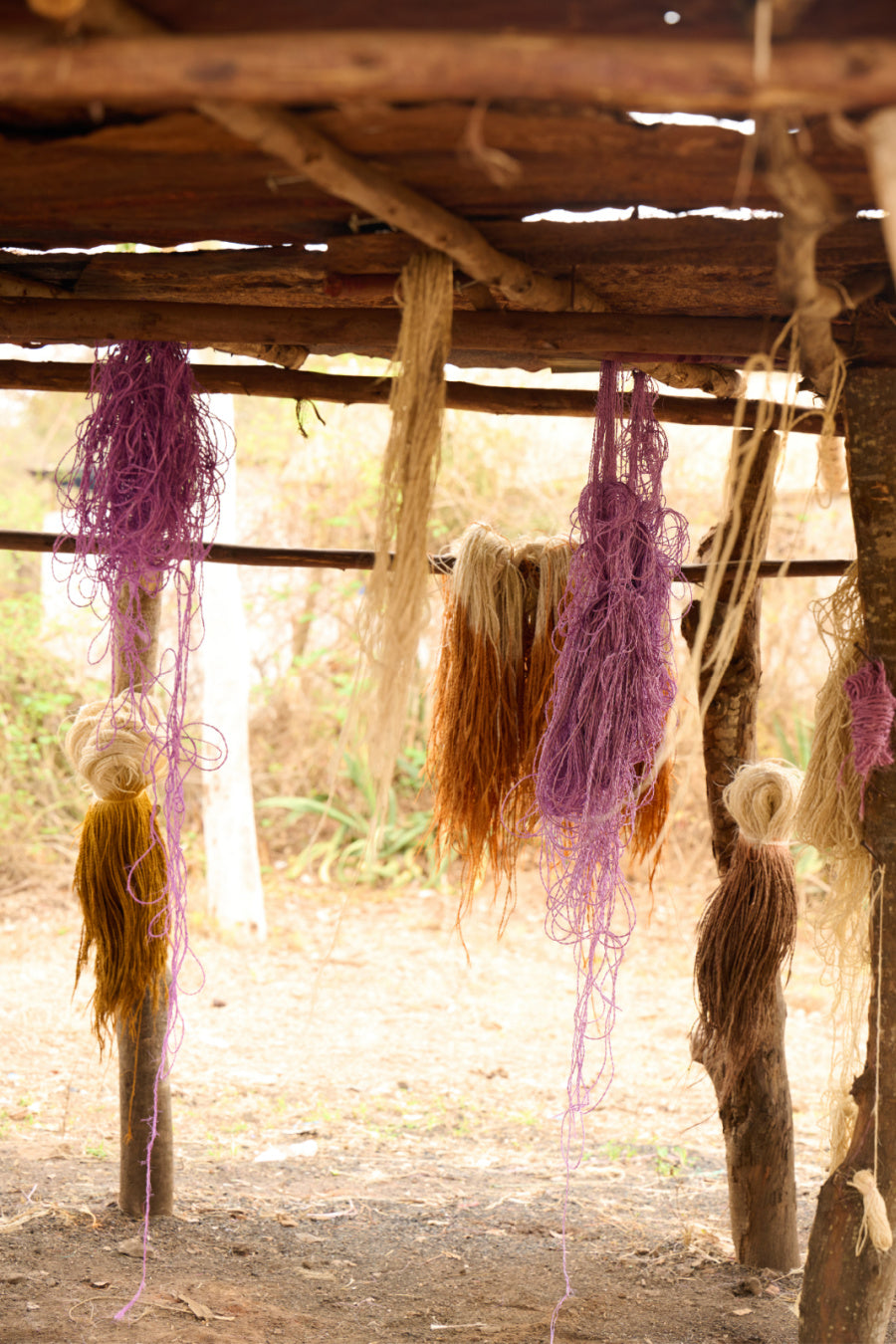
Material Choices & Dyes
We want to ensure that, wherever possible, our materials are organic and are working in harmony with the land from which they are sourced.
The Basket room stands out from most other fashion and homeware brands when it comes to material choices. Our baskets are typically made from natural and organic raw materials. We use natural materials which are non-water and non-pesticide intensive. We like to work with local materials that can be sourced in the country where they are woven – this supports local industry and ensures that we keep our raw material transport emissions as low as possible.
Polyester only makes up 1.2% of our products and we have committed to phasing out polyester completely by 2024. We also like to work with second-hand materials such as unravelled jumpers found in the second-hand clothes markets in Kenya.
We do all we can to only use natural dyes or AZO-free dyes. For our natural range of baskets, our weavers use the traditional dyeing methods passed down from generation to generation. Browns, Oranges, Reds and Greys are created using a variety of locally found natural materials such as leaves , tree bark, roots, leaves, charcoal and soot.
When creating our more vibrant looks, modern dyes are used. In the majority of cases, these are AZO-free dyes. These dyes do not contain any toxic compounds, ensuring no harmful chemicals are released into the environment during production. We are currently working with two remaining suppliers not yet using AZO-free to support them in moving across to this dye type.
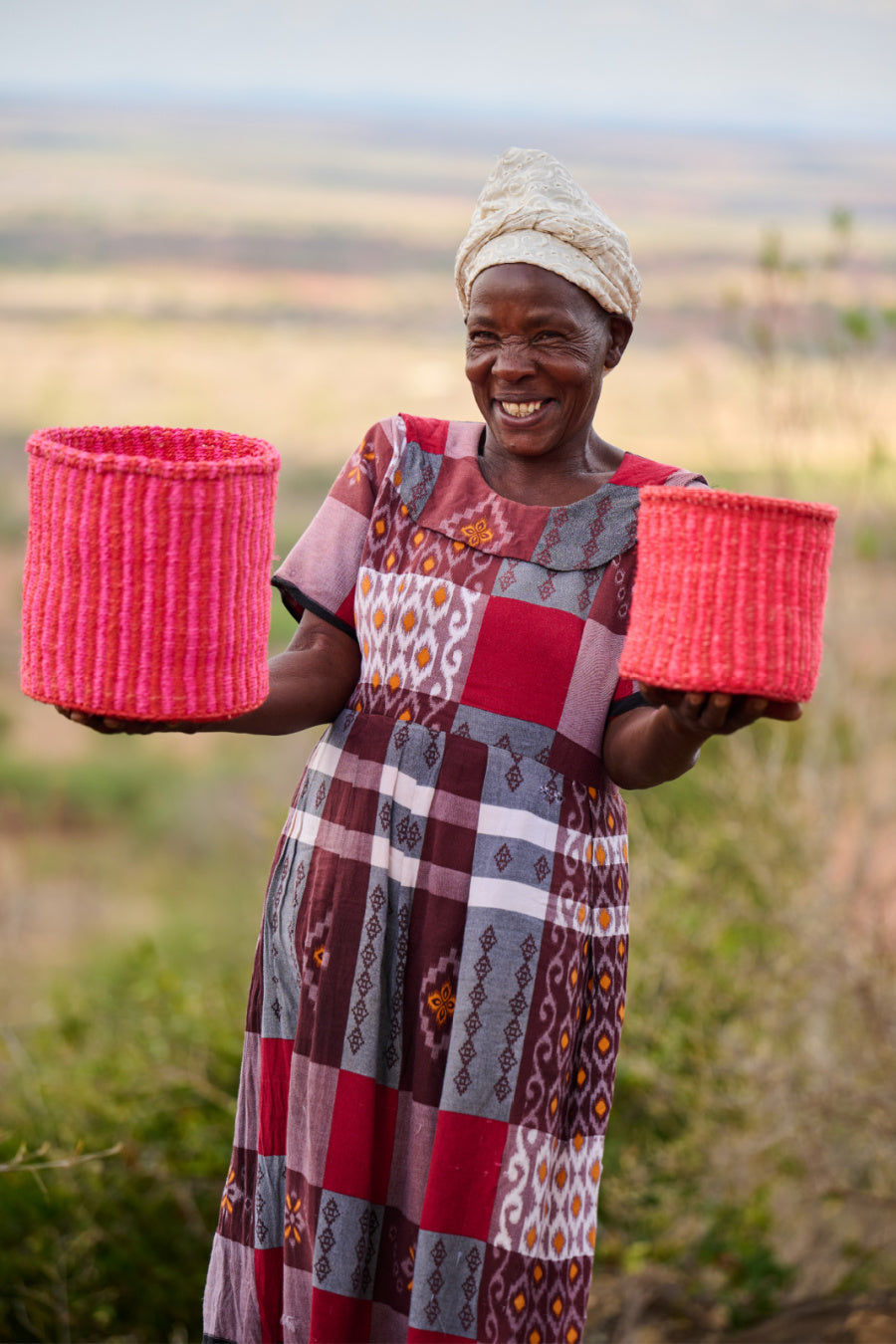
Our Supply Chain
We are a female-led brand with a mission to uplift and provide sustainable opportunities for our weavers. These weavers are the heart of our business and brand; without their skill, flair and dedication, The Basket Room would not exist.
Most of our weavers live in challenging rural environments and are economically disadvantaged. In general, weavers have grown up as subsistence farmers, but climate change threatens this way of life. Drought and rising temperatures are causing crops to fail. These climate challenges, coupled with the spiralling cost of living, means they can no longer rely on their land to sustain themselves.
Weaving was traditionally a way to socialise and earn some supplementary income. However, the income from these baskets is increasingly becoming their entire livelihood. Supplementary income from The Basket Room provides a sustainable alternative to other income-generating activities that many are forced to turn to, such as poaching or illegal deforestation for charcoal.
We work hard to ensure that our weavers are receiving a fair wage and working under ethical working conditions. By bringing baskets to the global market, we are able to pay weavers up to 50% more than what they would receive for the same baskets in local wholesale markets. We pay up to 70% upfront, implement long lead times, provide training and try to ensure we issue consistent orders to avoid fluctuating
income.
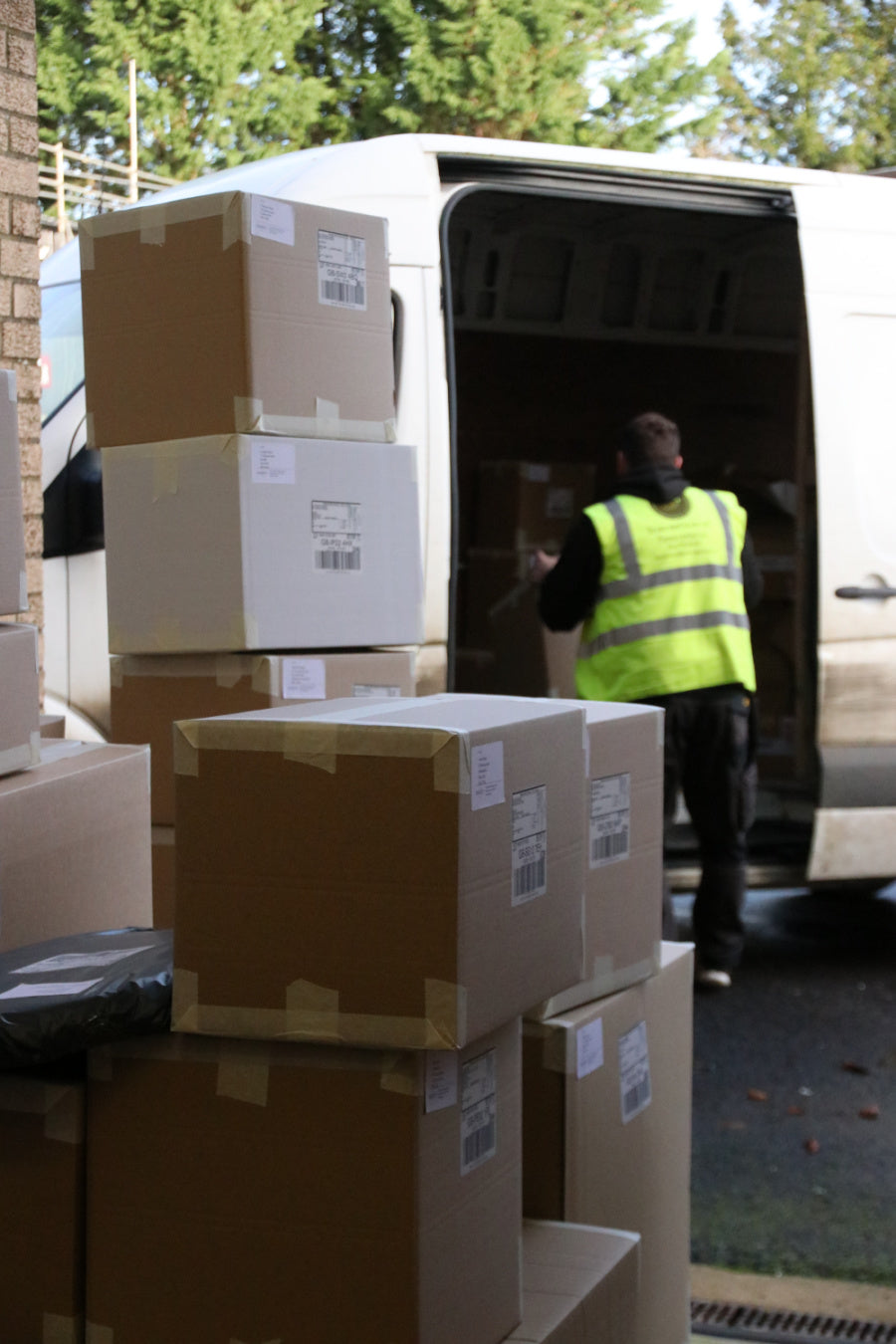
Logistics
While we will always have to move our baskets from Africa to the UK, we have put in place various measures to ensure we are not creating a larger carbon footprint than necessary.
We are acutely aware that our most significant environmental impact comes from our logistics, so we do what we can to keep our logistics emissions to a minimum. In the country of production, we only collect baskets once there is enough stock to fill a whole truck. Where we do not source enough baskets to fill a truck, we arrange for these baskets to travel on a "matatu", a passenger van which will transport our goods
on the roof for a fee. This keeps our Co2e to a minimum as the vehicle is travelling whatever; the goods on top are an added bonus!
99% of our baskets are transported by sea freight, and we always wait until we have enough stock to fill an entire container before we ship. We avoid air freight at all costs; this is only used if we are producing for third-party brands that need to stock quickly. However, we are working with our partners to try to help them forward plan so they too can use sea freight where possible.
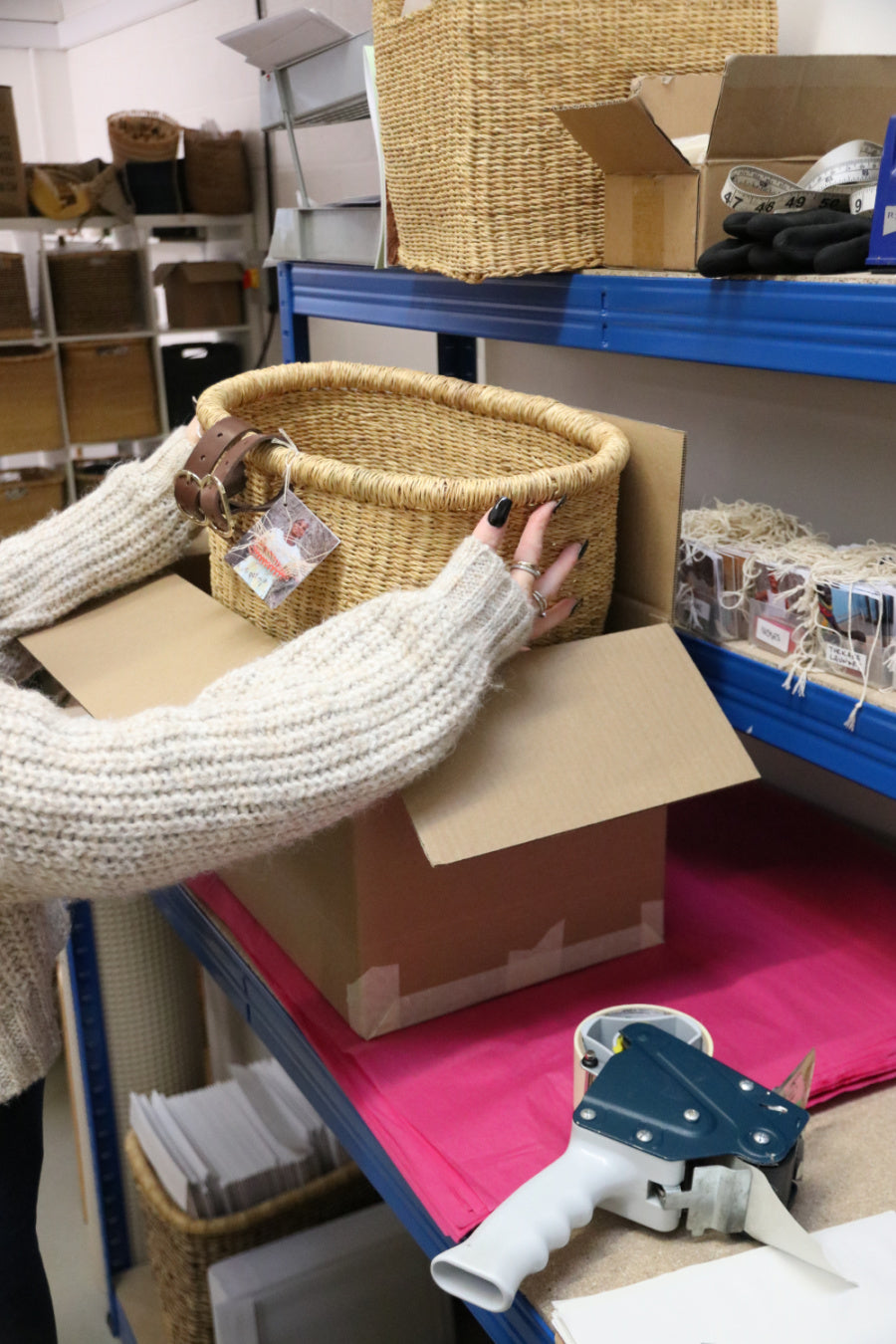
Packaging
We keep our packaging to a minimum and the packaging we do use has had a lot of thought put into it.
We avoid plastic packaging wherever possible. We use recycled cardboard boxes, recycled tissue paper, and craft tape which is 100% recyclable and non-toxic. Our tags are made from recycled cards, and printed with alcohol-free vegetable oil-based inks. We have also moved away from plastic tags, using cotton ties instead.
We do use plastic sacks for transporting our baskets in containers from Kenya and Ghana, to keep them protected and dry during transit. The majority of these bags are pre-used, for example, bags that have transported bulk commodities such as rice and sugar to Kenya and Ghana. Once these bags reach the UK in our containers, we then use these a second time for sending out laundry baskets to our customers as we haven't been able to source a cardboard box big enough! The remaining bags that we are left with we recycle locally.
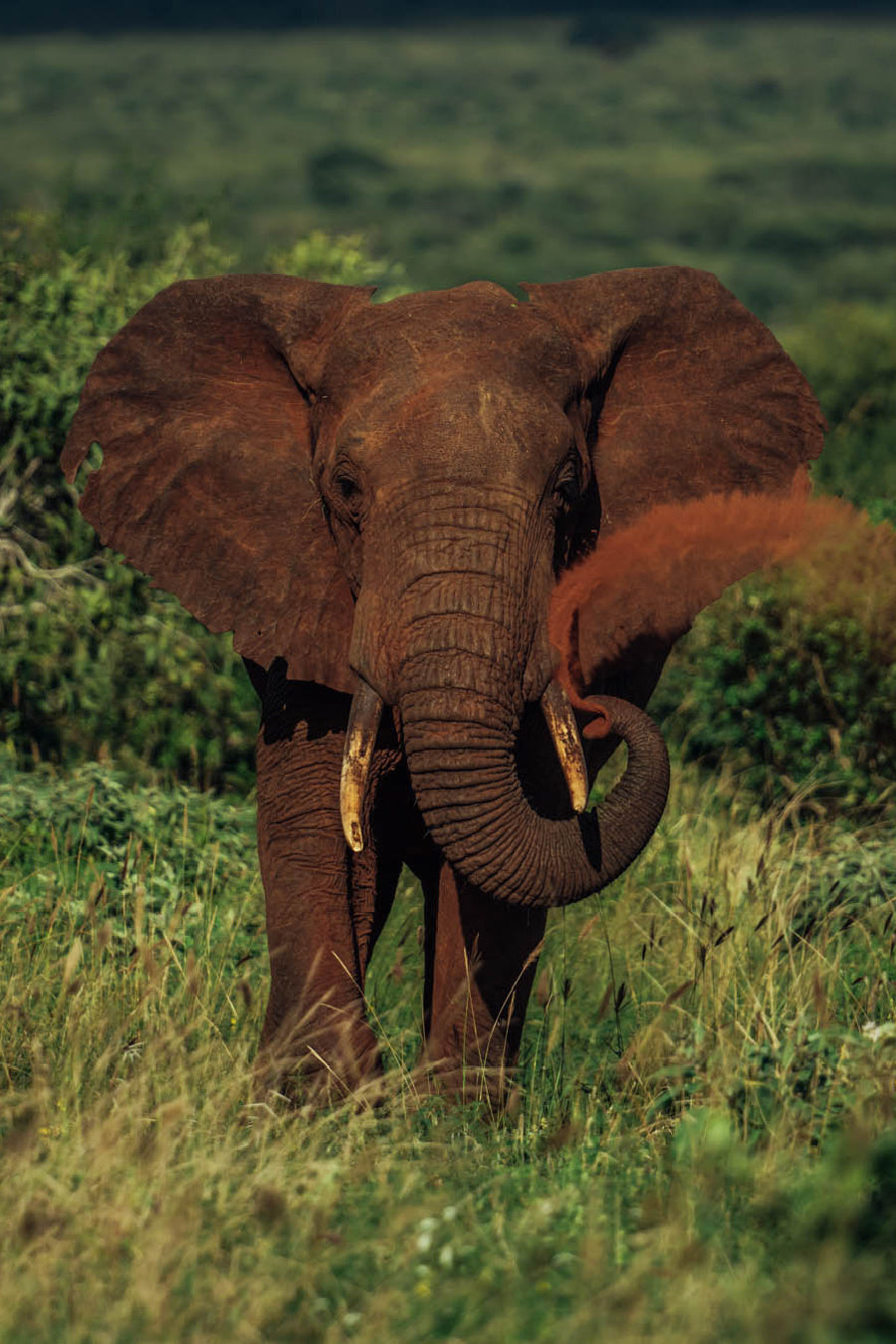
Carbon Offsetting With Local Partners
We are offsetting our carbon emissions and are attempting to design an ever more streamlined logistics model to bring down our carbon footprint.
We conducted our first carbon footprint in 2022 for our 2021 emissions data. This included all scope 1 and 2 emissions as well as scope 3 emissions in the company’s value chain that we were able to measure. Our calculations included all Africa-based logistics, sea and air freight, water consumption, flights and hotels.
We are committed to taking responsibility for our carbon impact and have decided to offset our entire carbon footprint, from production up to dispatch. Our carbon credits will be supporting the Wildlife Works Kasigau Corridor REDD+ Project, a UN Reducing Emissions from Deforestation and forest Degradation (REDD) certified project based in Voi, Kenya.
Learn more about our commitment to managing our emissions and the great work of Wildlife Works here.
